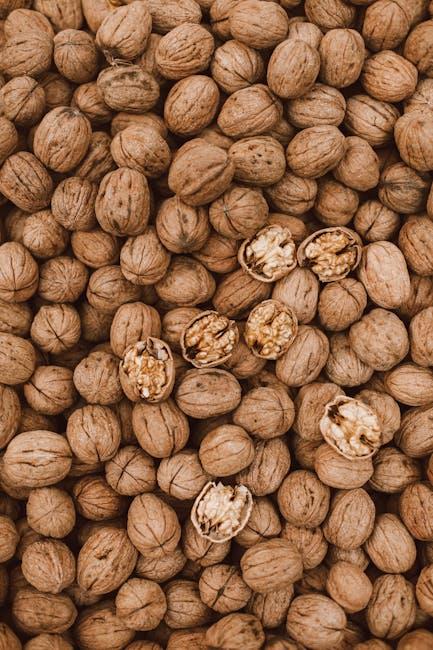In the quest for weight loss, many find themselves navigating a labyrinth of diets, exercise routines, and wellness trends, each promising transformative results. Amidst this cacophony, one essential nutrient often emerges as a key player: protein. Revered by athletes and dieters alike, protein is more than just a building block for muscles; it is a cornerstone of effective weight management. But what makes protein so pivotal in shedding pounds? Is it the secret ingredient to unlocking a healthier, leaner body, or simply another piece of the complex puzzle of weight loss? In this article, we delve into the science and significance of protein, exploring its multifaceted role in weight loss and uncovering how it can be harnessed to achieve lasting results. Join us as we unravel the mystery of protein and its profound impact on the journey to a healthier you.
The Science Behind Protein and Metabolism
At the core of weight loss, protein plays a pivotal role by influencing metabolic processes in fascinating ways. When you consume protein, your body expends more energy to digest it compared to fats and carbohydrates. This phenomenon, known as the thermic effect of food (TEF), means that a higher protein intake can naturally boost your metabolism, leading to increased calorie burning. Furthermore, protein is essential in preserving muscle mass during weight loss. Muscle tissue requires more energy to maintain, and by protecting it, you ensure that your body burns more calories even at rest.
Additionally, protein impacts several metabolic pathways that aid in weight management. It helps regulate appetite by increasing the production of hormones like peptide YY and GLP-1, which promote a feeling of fullness. This can lead to reduced calorie intake without the constant feeling of hunger. Some key benefits of protein in metabolism include:
- Increased Satiety: Helps you feel fuller for longer periods.
- Muscle Preservation: Maintains lean muscle mass during calorie restriction.
- Enhanced Calorie Burning: Boosts energy expenditure through TEF.
Understanding these mechanisms underscores why protein is often highlighted in weight loss strategies. By integrating adequate amounts of protein into your diet, you can leverage these metabolic advantages to support your weight loss goals effectively.

Crafting a Protein-Rich Diet Plan
Incorporating protein into your daily meals can be a game-changer for those aiming to shed some pounds. A protein-rich diet helps in maintaining muscle mass while promoting fat loss, keeping you feeling fuller for longer. To craft a diet plan that’s high in protein, focus on incorporating a variety of sources. Consider adding lean meats like chicken and turkey, fish such as salmon and tuna, and plant-based options like tofu and lentils. Don’t forget the power of eggs and dairy products like Greek yogurt and cottage cheese.
When building your meal plan, aim for balance and variety. Here are some tips to get you started:
- Mix and match: Combine different protein sources to keep meals interesting and nutritionally balanced.
- Snack smartly: Opt for high-protein snacks like nuts, seeds, or protein bars.
- Mind portion sizes: Ensure each meal contains a substantial protein portion without overloading on calories.
- Stay hydrated: Protein metabolism requires adequate water intake, so keep your hydration in check.
Remember, a well-rounded diet plan not only focuses on protein but also includes healthy fats and carbohydrates to fuel your body efficiently. With a thoughtful approach, protein can be your ally in achieving weight loss goals.

Balancing Protein Intake with Other Nutrients
While protein is a powerhouse for weight loss, ensuring a balanced diet with other nutrients is equally crucial for overall health. A diet overly focused on protein can inadvertently lead to the neglect of other vital nutrients such as carbohydrates, fats, vitamins, and minerals. Carbohydrates are essential for energy, fueling your workouts and daily activities. Healthy fats play a significant role in hormone production and cell health, while vitamins and minerals support a wide range of bodily functions, from immune response to bone health.
- Carbohydrates: Opt for whole grains, fruits, and vegetables to ensure sustained energy levels.
- Healthy Fats: Include sources like avocados, nuts, and olive oil to maintain balanced hormone levels.
- Vitamins and Minerals: Diversify your diet with colorful fruits and vegetables to cover a spectrum of nutrients.
Incorporating these elements alongside protein creates a holistic approach to nutrition that not only aids in weight loss but also promotes long-term well-being. By understanding the symbiotic relationship between these nutrients, you can craft a diet that supports both your fitness goals and your overall health.

Expert Tips for Maximizing Protein Benefits
Unlocking the full potential of protein in your diet can be a game-changer for weight loss. Here are some expert strategies to help you harness its benefits effectively:
- Prioritize Protein Timing: Distribute your protein intake evenly throughout the day. This can enhance muscle synthesis and keep you feeling satiated, reducing the likelihood of unhealthy snacking.
- Choose High-Quality Sources: Opt for lean meats, fish, eggs, and plant-based proteins like quinoa and lentils. These sources provide essential amino acids that support metabolism and muscle maintenance.
- Pair with Fiber: Combining protein with high-fiber foods such as vegetables and whole grains can further enhance feelings of fullness, helping to control calorie intake.
- Stay Hydrated: Adequate water intake is crucial when increasing protein consumption, as it aids digestion and nutrient absorption.
Implementing these tips can not only support weight loss goals but also contribute to overall health and well-being. Remember, balance and variety are key components of a successful dietary plan.
In Summary
In the intricate dance of weight loss, protein emerges as a steadfast partner, guiding each step with precision and purpose. Its role is multifaceted, from the silent architect of muscle repair to the vigilant sentinel of satiety. As we unravel the complexities of dietary choices, understanding protein’s pivotal position empowers us to make informed decisions on our journey to wellness. Let us embrace this knowledge, not as a rigid rulebook, but as a compass pointing toward a healthier, balanced future. In the symphony of nutrition, protein is not just a note but a resonant chord, harmonizing our efforts and echoing the promise of transformation.


































